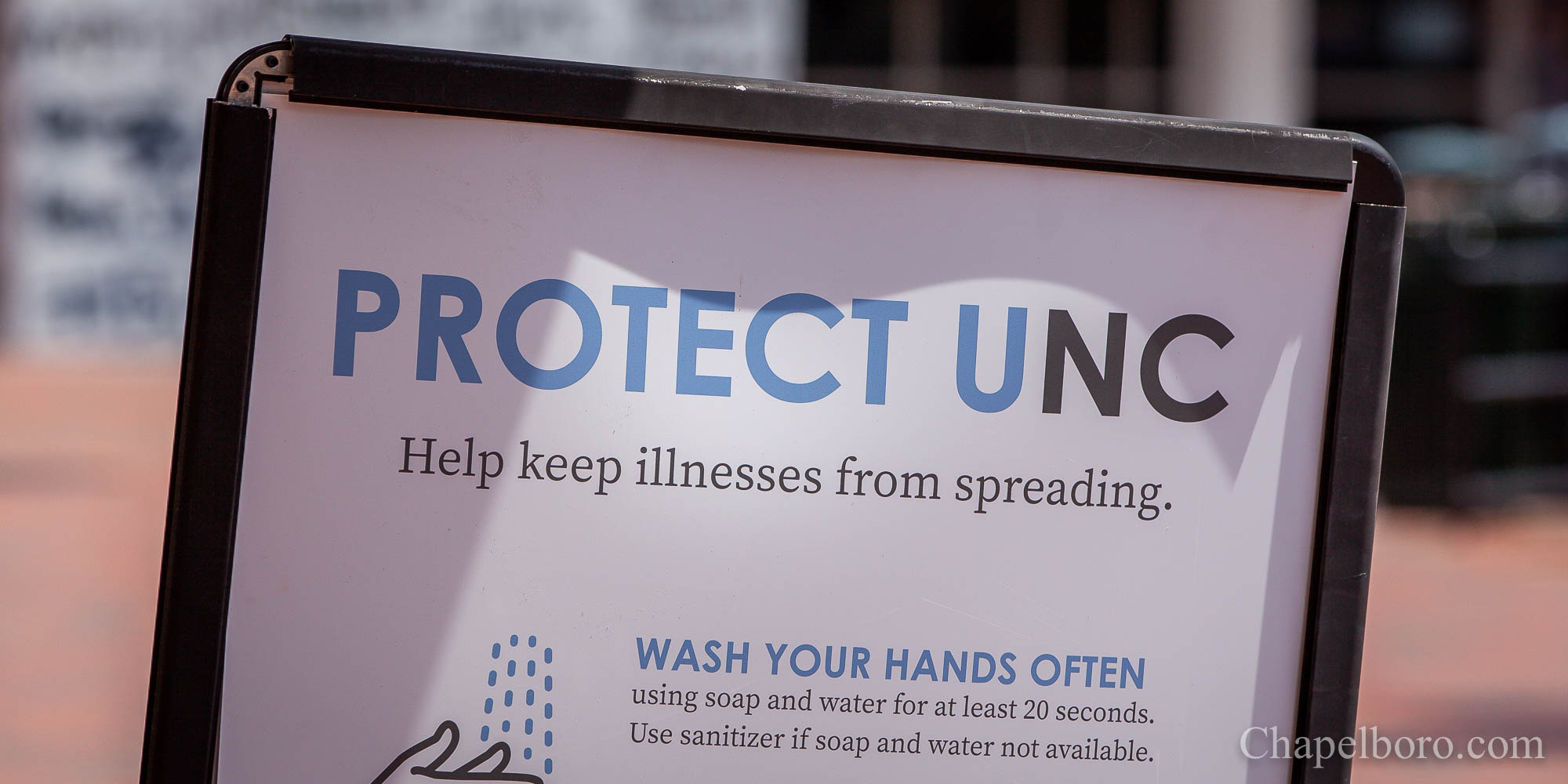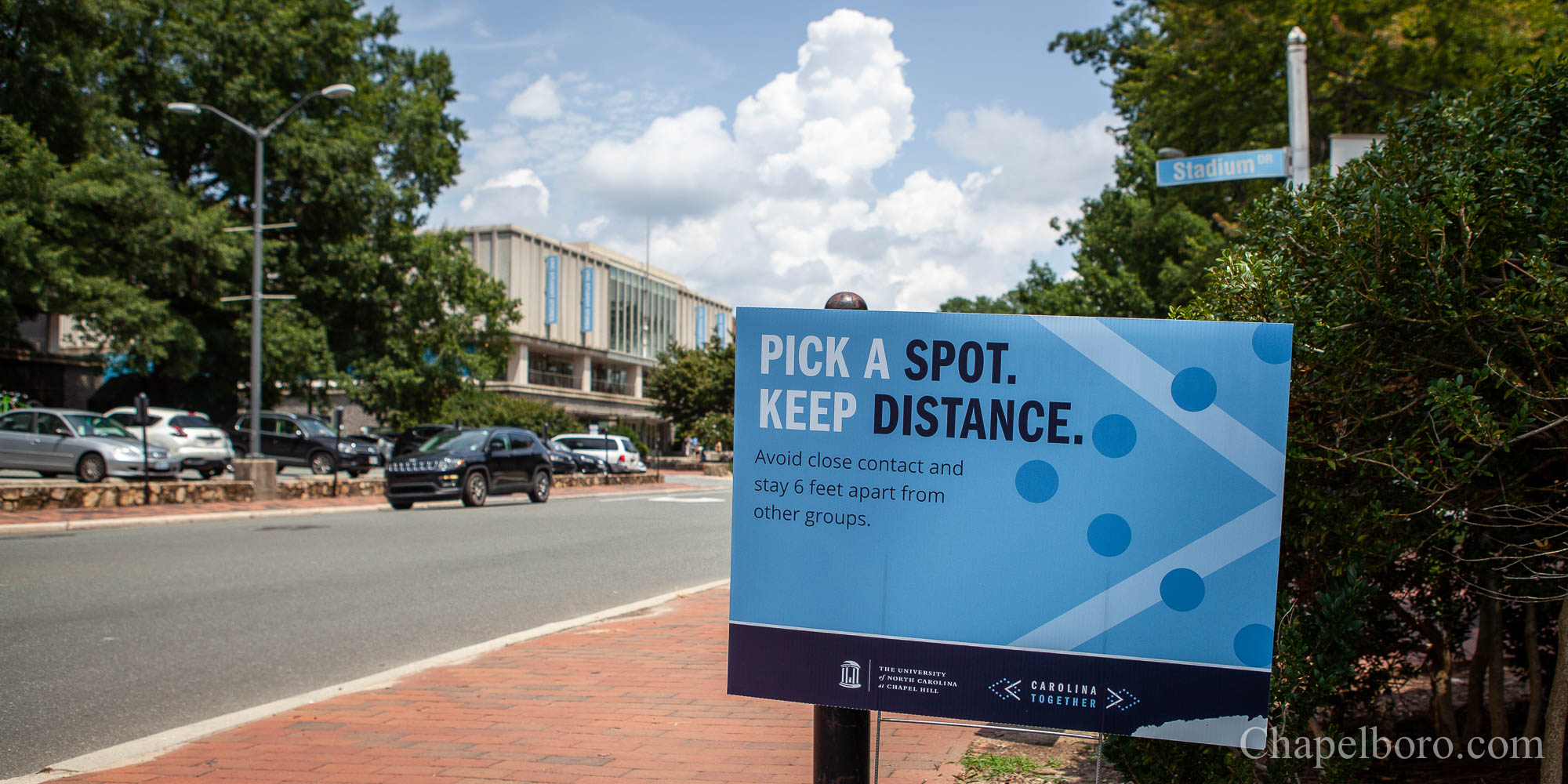Researchers at UNC’s Gillings School of Global Public Health aided the development of a new antiviral drug meant to treat COVID-19 patients, which is now heading to testing in human clinical trials.
According to a study published Monday in the journal Science Translational Medicine, UNC virologists have been testing a new drug, called EIDD-2801, in collaboration with researchers at Vanderbilt University and Emory University, working to improve treatment of the new coronavirus by health care workers. The drug reportedly showed promise in mice test trials, reducing lung damage and weight loss in 12 to 24 hours after infection. The study also conducted tests on cultured human lung cells infected with SARS-CoV-2, the specific virus causing the COVID-19 disease, and is believed to have a longer window of opportunity to receive the drug.
In addition to reducing some of the most dangerous symptoms of COVID-19, the EIDD-2801 drug also is taken in pill form, which may increase its effectiveness as a treatment. According to the study, the orally available form includes the antiviral compound EIDD-1931, which also inhibits other coronaviruses like SARS-CoV-2. The compound can be properly absorbed to travel to the lungs when taken in a pill form.
“This new drug not only has high potential for treating COVID-19 patients, but also appears effective for the treatment of other serious coronavirus infections,” wrote senior author Dr. Ralph Baric, whose lab at the Gillings School led the UNC side of research.
According to first author Timothy Sheahan, a Gillings School assistant professor of epidemiology and a collaborator in the Baric Lab, the drug could be used not only to limit the spread of SARS-CoV-2, but also could control future outbreaks of other emerging coronaviruses if successful in trial.
“With three novel human coronaviruses emerging in the past 20 years, it is likely that we will continue to see more,” said Sheahan. “EIDD-2801 holds promise to not only treat COVID-19 patients today, but to treat new coronaviruses that may emerge in the future.”
The Baric Lab collaborated with the lab of Mark Denison, the Edward Claiborne Stahlman Professor of pediatrics at Vanderbilt University Medical Center, and George Painter, director of the Emory Institute for Drug Development, where EIDD-2801 was discovered.
As of Monday, more than 1.2 million positive cases of COVID-19 have been confirmed worldwide, with more than 307,000 confirmed cases in the United States. More than 67,000 deaths have been reported, according to the World Health Organization.
A release from UNC said clinical studies of the EIDD-2801 drug in humans are expected to begin later this spring.
Note: 97.9 The Hill has been Chapel Hill and Orange County’s daily source for free local news since 1953. Please consider making a contribution to continue supporting important local journalism like this.
Related Stories
‹

COVID-19 Cluster Reported at UNC's Avery Residence HallUNC has identified a cluster of COVID-19 cases at Avery Residence Hall on campus. This is the second COVID-19 cluster identified at UNC in 2021 and the first since the spring semester began on January 19. Earlier this month, a cluster was identified at Carmichael Residence Hall between students who lived on campus during winter […]

UNC Research Study Helps Local Businesses Stay Safe During PandemicA team of UNC public health experts created a new initiative and research study to provide free technical assistance and recommendations to help reduce local businesses’ exposure to COVID-19.

UNC Announces Calendar for Spring 2021 Semester, Delays Start by 2 WeeksUNC has announced its calendar for the spring 2021 semester amid the ongoing coronavirus pandemic, which will include a delayed start. “We have been carefully listening to the voices of our community as we consider the important lessons learned from planning for the fall and prepare to make updates to our Roadmap to offer classes […]

UNC: New COVID-19 Cluster at Rams Village, 13th Reported on CampusUNC has notified the campus community of another COVID-19 cluster on campus, this time at Rams Village Building #5. This is the 13th COVID-19 cluster reported on the university’s campus. A cluster is five or more positive COVID-19 cases, according to North Carolina Health and Human Services. Officials said the individuals in the cluster have been identified and […]

UNC Reports New COVID-19 Cluster at Residence Hall, 12th on CampusUNC has notified the campus community of another COVID-19 cluster on campus, this time at Cobb residence hall. This is the 12th COVID-19 cluster reported on the university’s campus. A cluster is five or more positive COVID-19 cases, according to North Carolina Health and Human Services. Officials said the individuals in the cluster have been identified and are […]

New COVID-19 Cluster Identified at UNC Residence Hall, 11th on CampusA new COVID-19 cluster has been identified at Koury residence hall on UNC’s campus on Tuesday afternoon. An AlertCarolina message said “the individuals in this cluster have been identified and are isolating and receiving medical monitoring.” A cluster is five or more positive COVID-19 cases, according to state health guidelines. !Alert Carolina! Emergency Notification: Cluster of COVID-19 […]

Coronavirus at UNC: A TimelineUNC is one of the first major universities to move back to remote instruction this fall after attempting to hold in-person instruction amid the COVID-19 pandemic. What happened between the last time in-person instruction was held and when UNC students were asked to leave the Chapel Hill campus once again? Chapelboro’s extensive reporting laid out […]

UNC Athletics Resumes Activities Following Temporary SuspensionUNC Athletics announced over the weekend that teams will resume athletic activities in the coming days. Men’s and women’s basketball, cross country, field hockey, men’s and women’s soccer and volleyball will resume activities on Sunday. Meanwhile, football has opted to return to practice on Monday. Other winter and spring sports will continue to pause […]

UNC to Pause Classes, Reports More Than 90 COVID-19 Cases in 1 DayUNC has paused undergraduate classes on Monday and Tuesday of next week as students transition to virtual learning for the remainder of the fall semester. In a message to the campus community, UNC Chancellor Kevin Guskiewicz said the university made the decision to allow students to “catch their breath” amid the coronavirus pandemic. “To our […]

UNC Athletics 'Expecting to Play This Fall' Despite University's Transition to Virtual ClassesAmid the news that UNC will transition to virtual classes for the fall semester, Carolina Athletics has released a statement saying they “still are expecting to play this fall.” On Monday, the university announced that it will move undergraduate courses online after 130 students tested positive for coronavirus in the first week of classes. Of the […]
›











